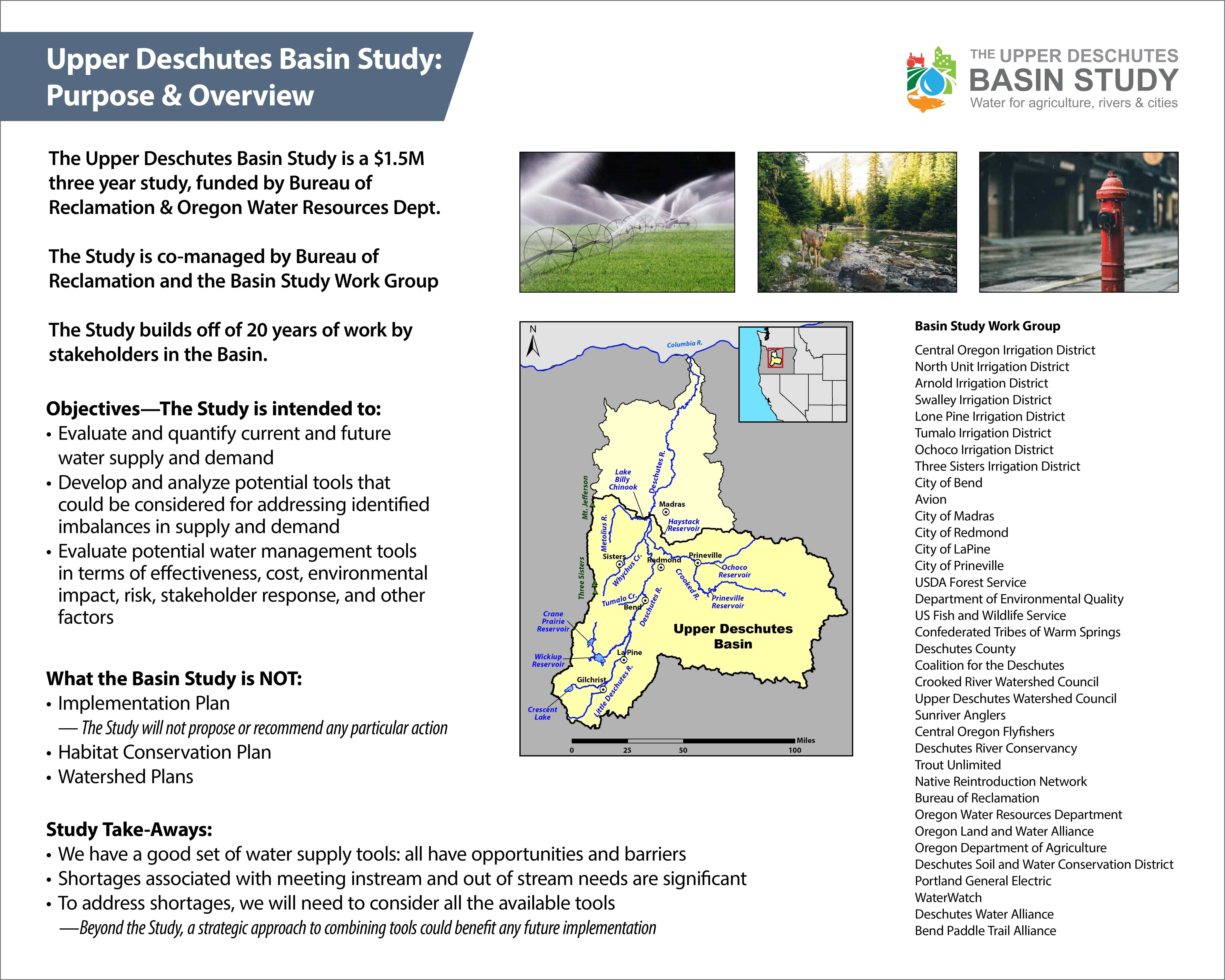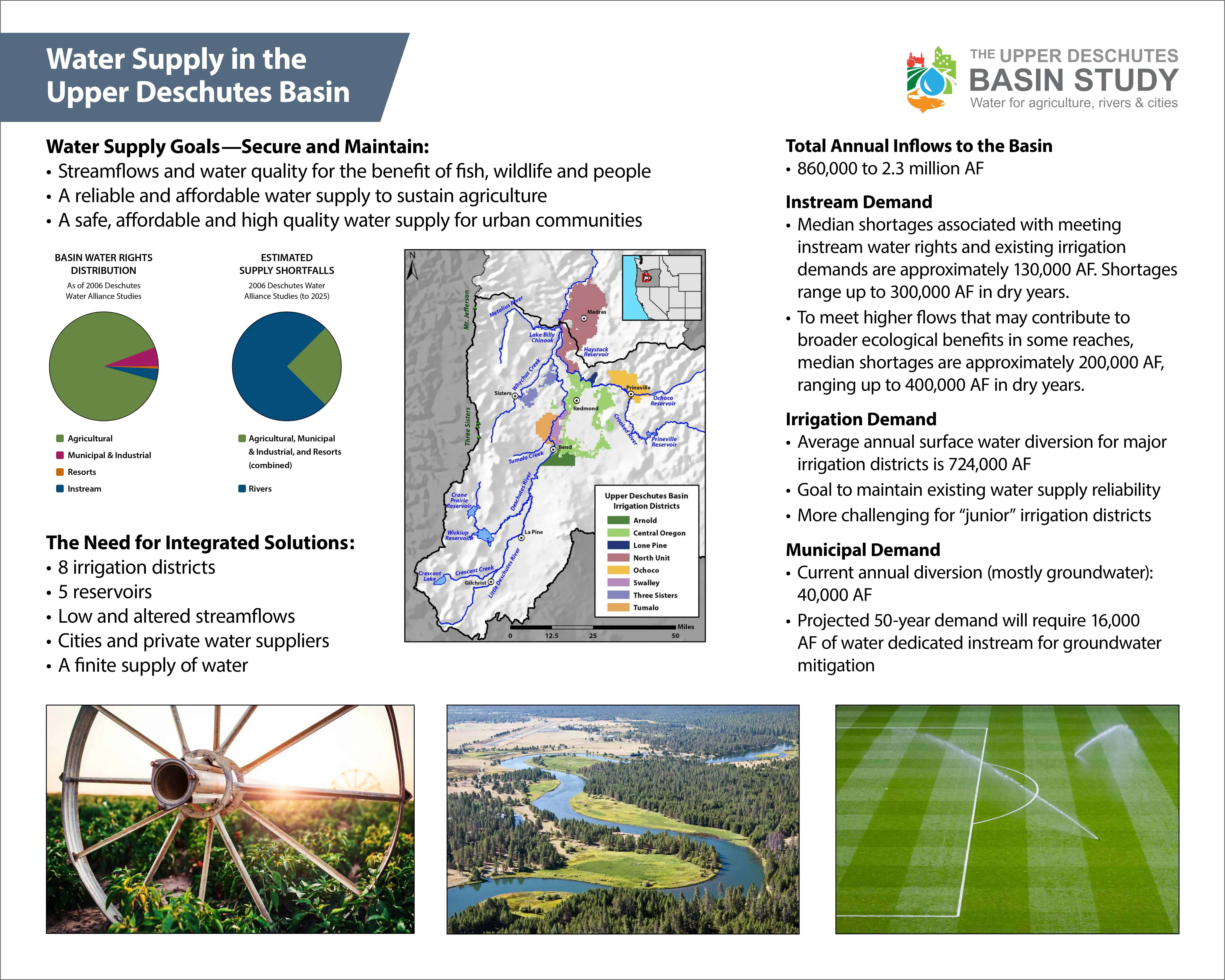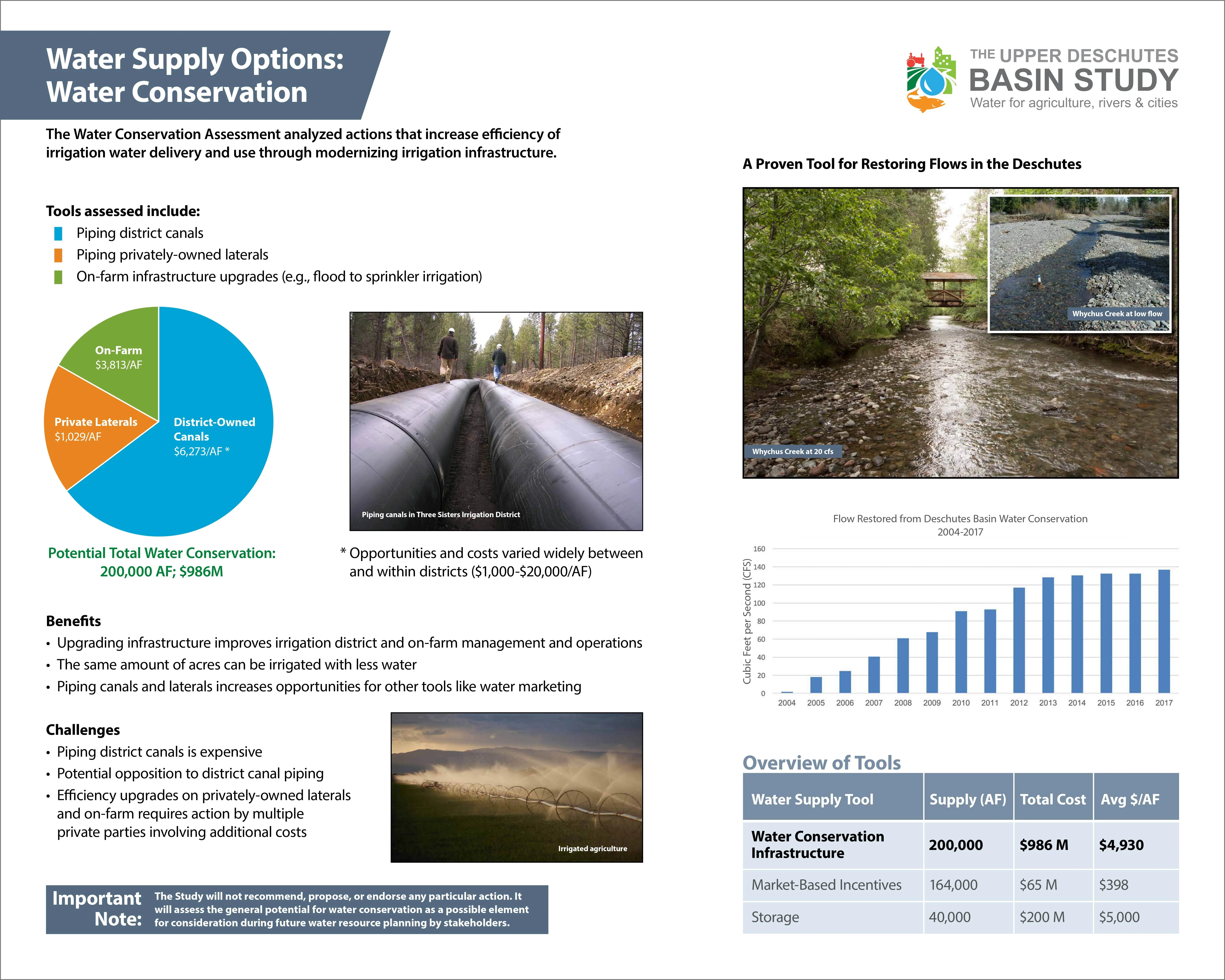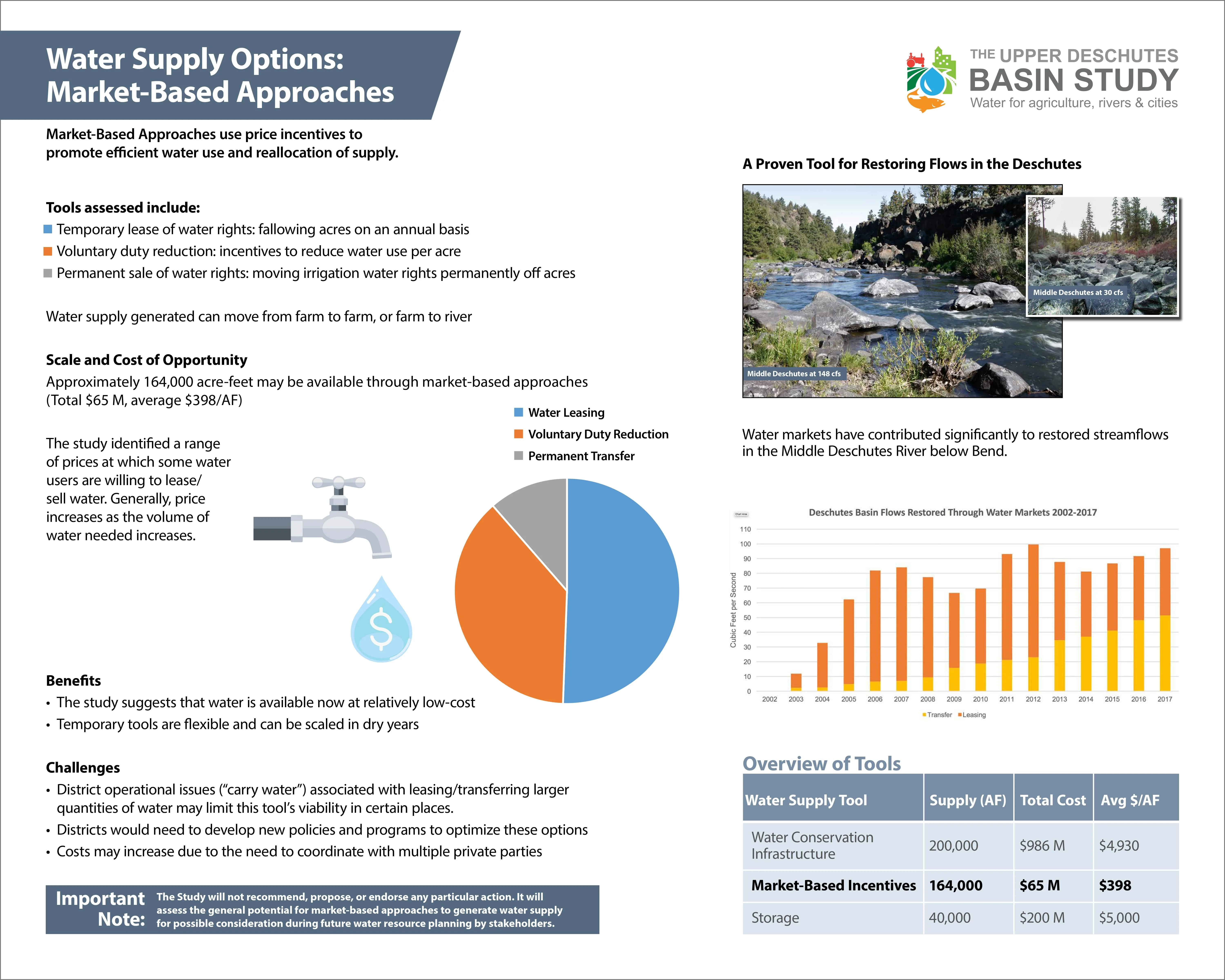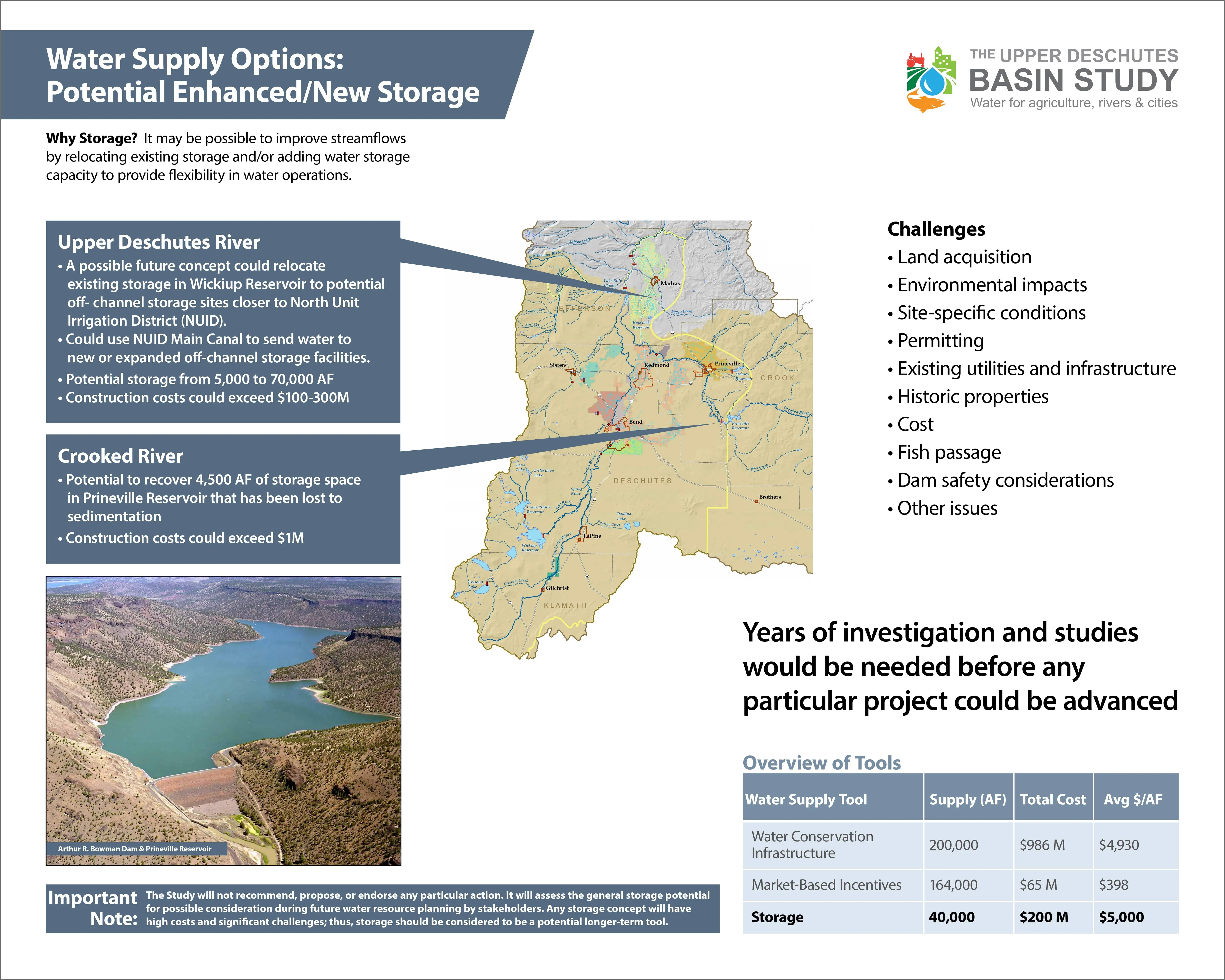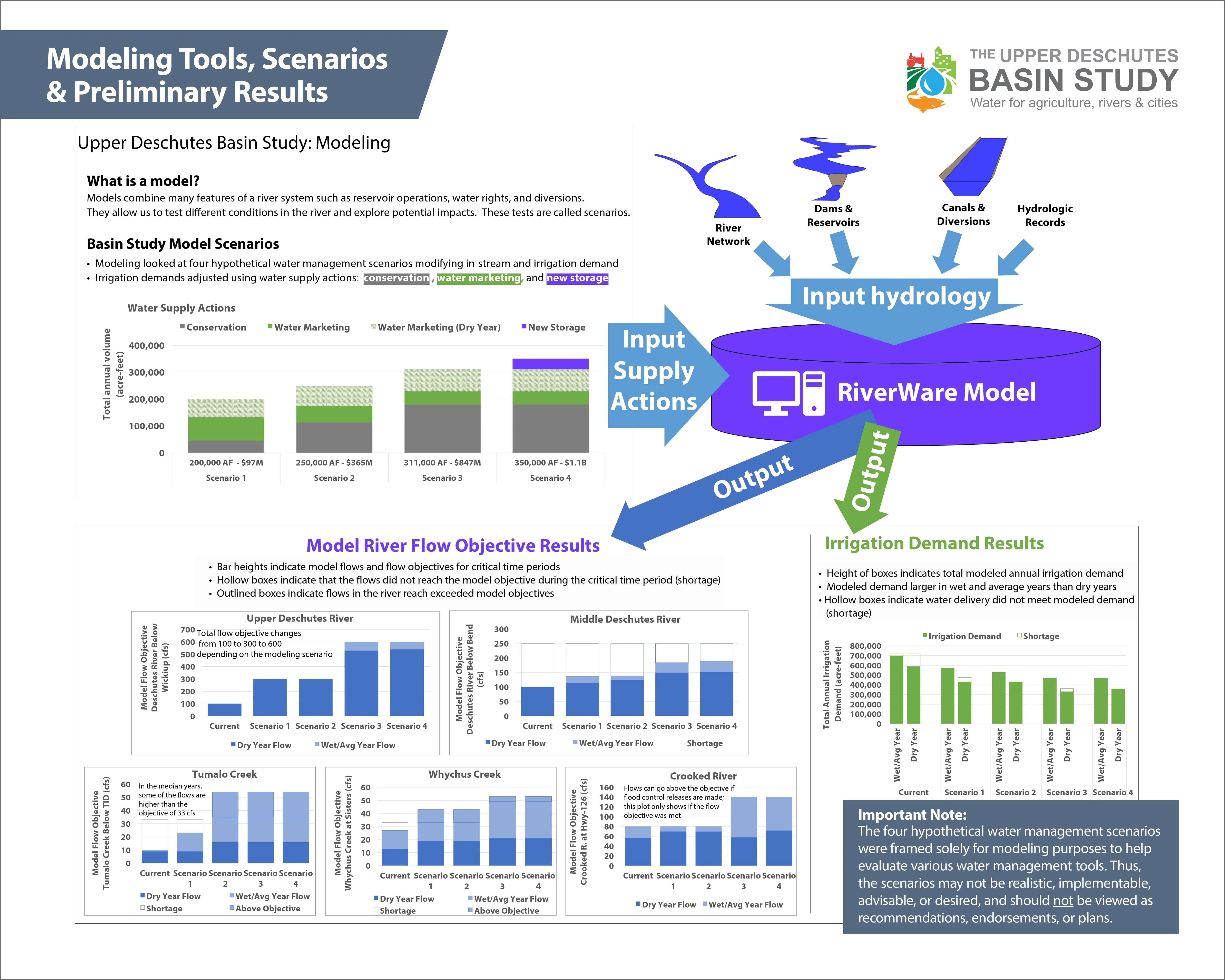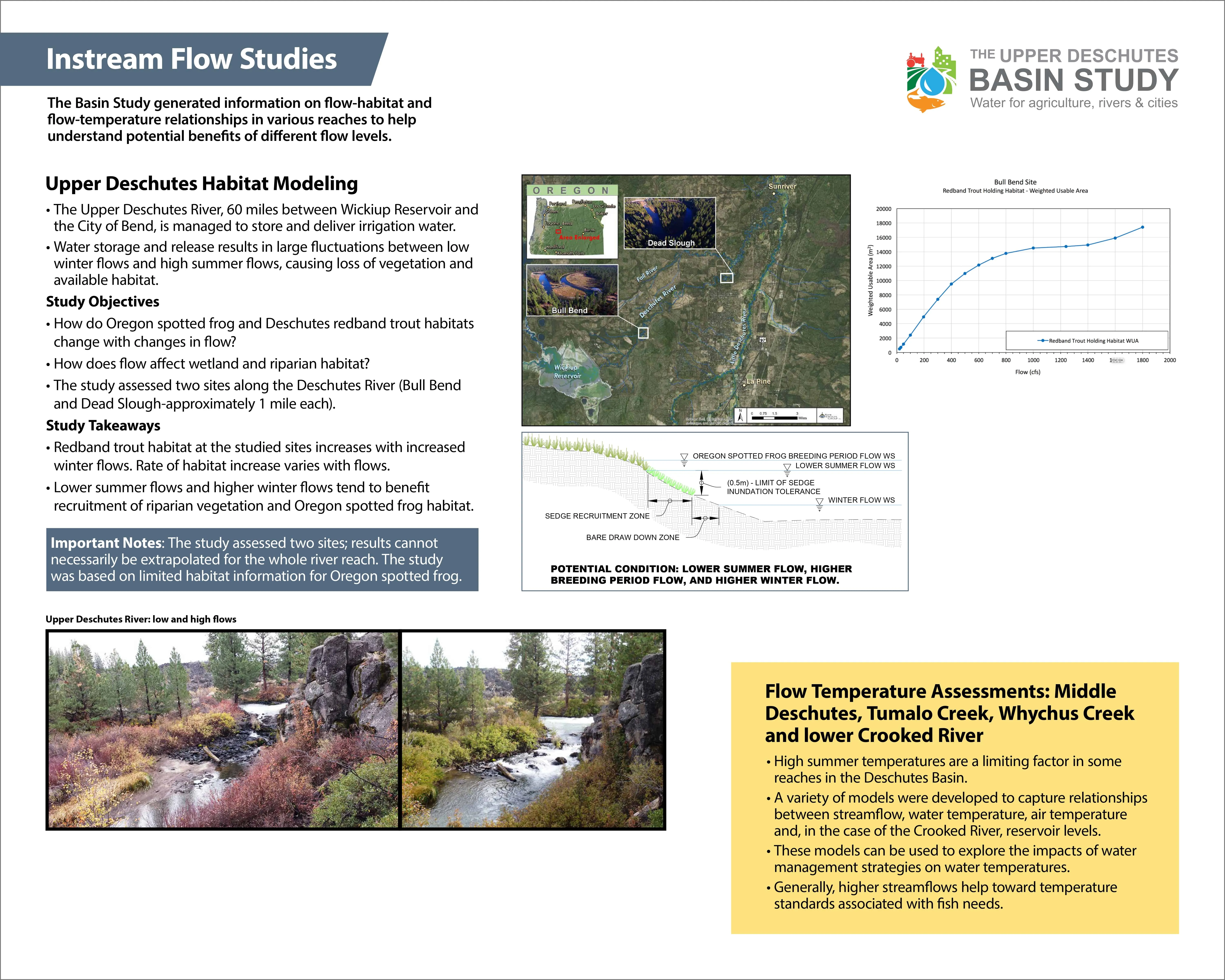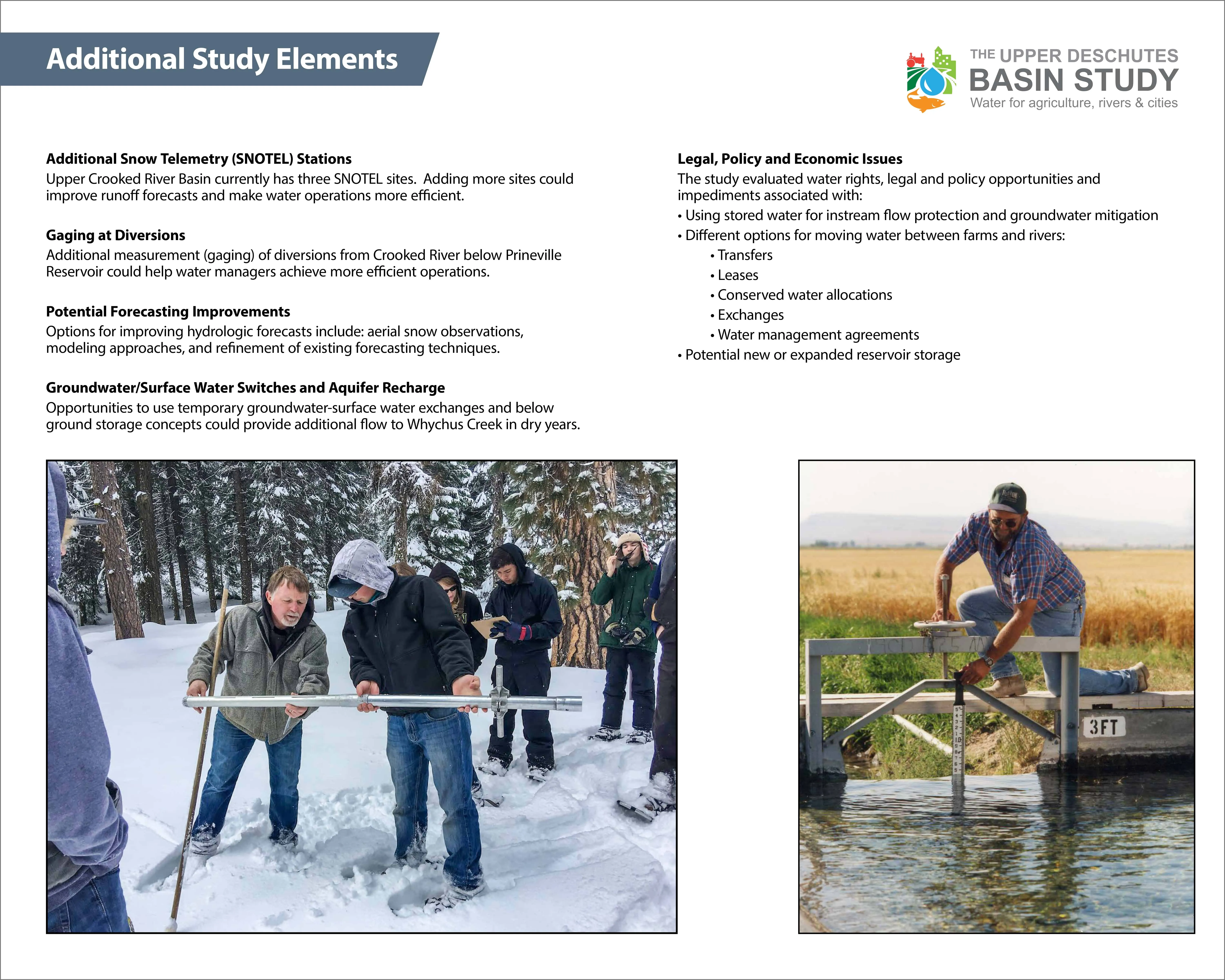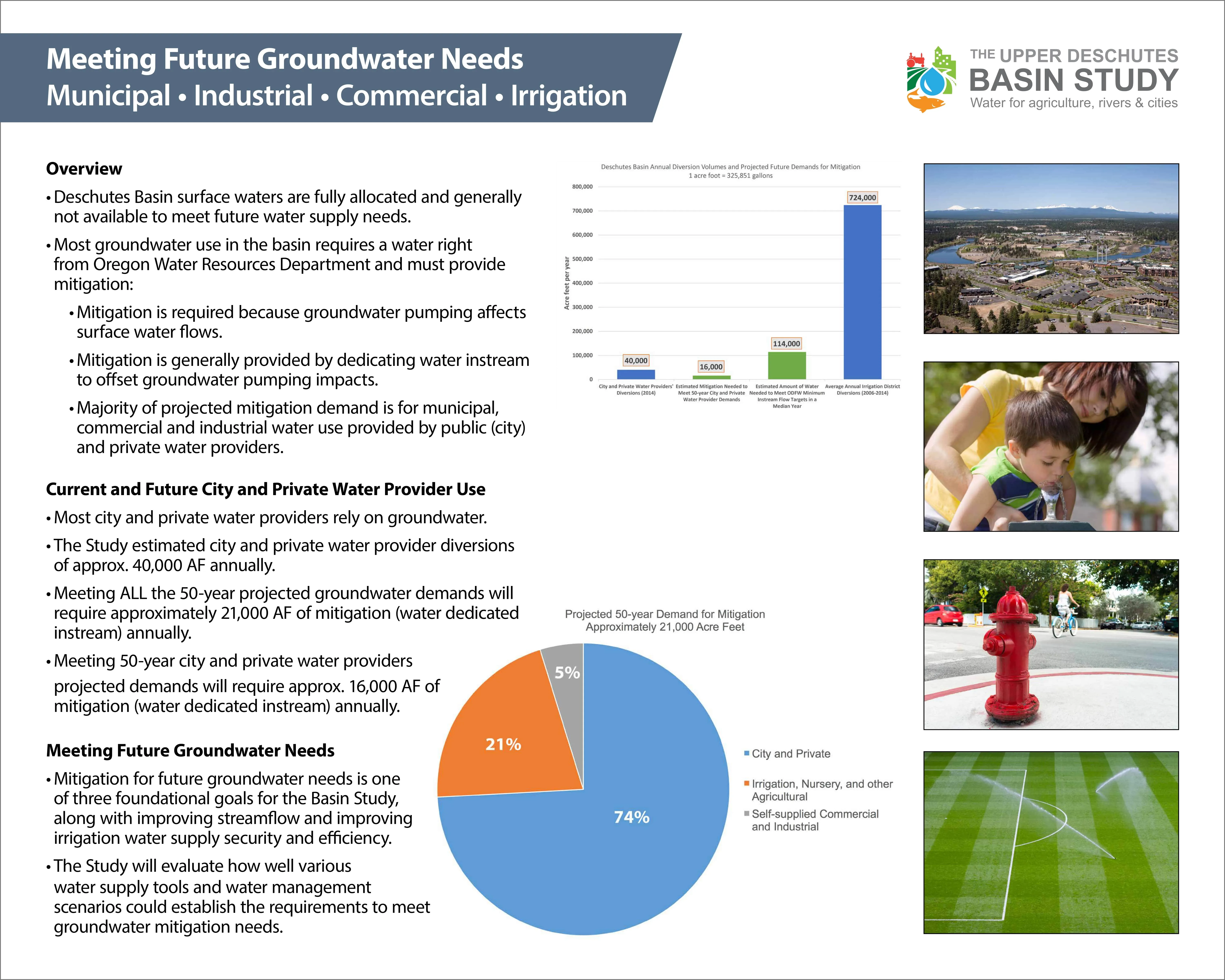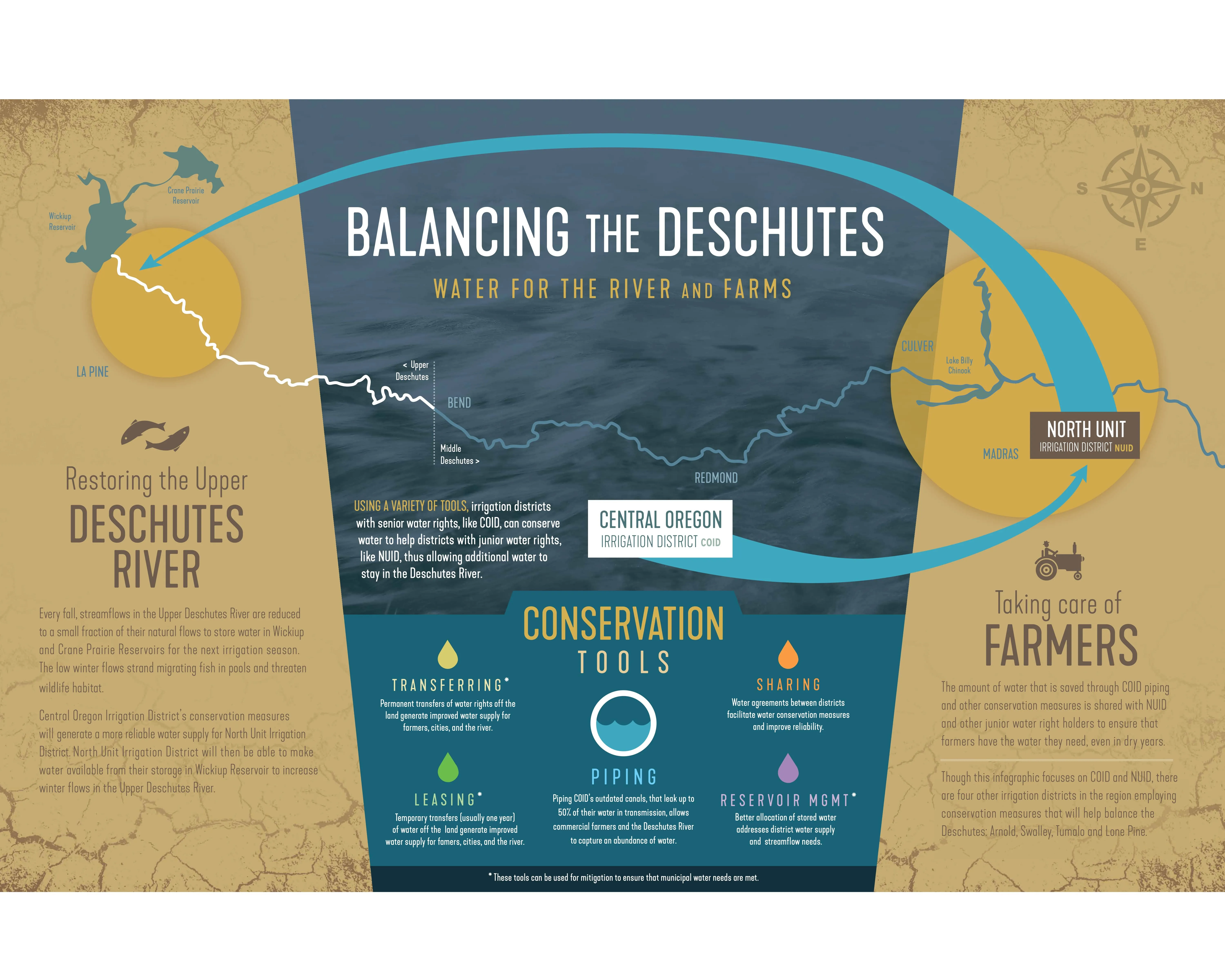Resources
Upper Deschutes Basin Study
A Legacy of Water Management
Over a century ago, federal and state policies encouraged settlement in Central Oregon by granting land and irrigation water rights. However, in many cases, more water rights were allocated than the river could supply during dry summer months. While this water enabled the region’s agricultural success, little consideration was given to maintaining streamflows and the health of local waterways. Today, competing needs from cities, farms, and rivers highlight the unintended consequences of those early decisions.
A Collaborative Approach to Solutions
Water challenges in the Deschutes Basin have always been met through collaboration. Recognizing the need for better long-term water management, 40 stakeholders came together in 2015 to apply for a $1.5 million Basin Study, funded by the Bureau of Reclamation and the Oregon Water Resources Department. Over three years, this group co-managed the study alongside the Bureau of Reclamation, demonstrating a deep commitment to cooperative problem-solving. While the study does not prescribe specific solutions, it provides critical data and insights to guide future water management efforts.
Key Takeaways
The study confirmed that there is enough water in the basin to meet the needs of rivers, farms, and cities—if managed strategically. However, implementing effective solutions at the necessary scale will require significant financial investment and cultural shifts. With the right tools and partnerships, the region can build a more sustainable water future.

